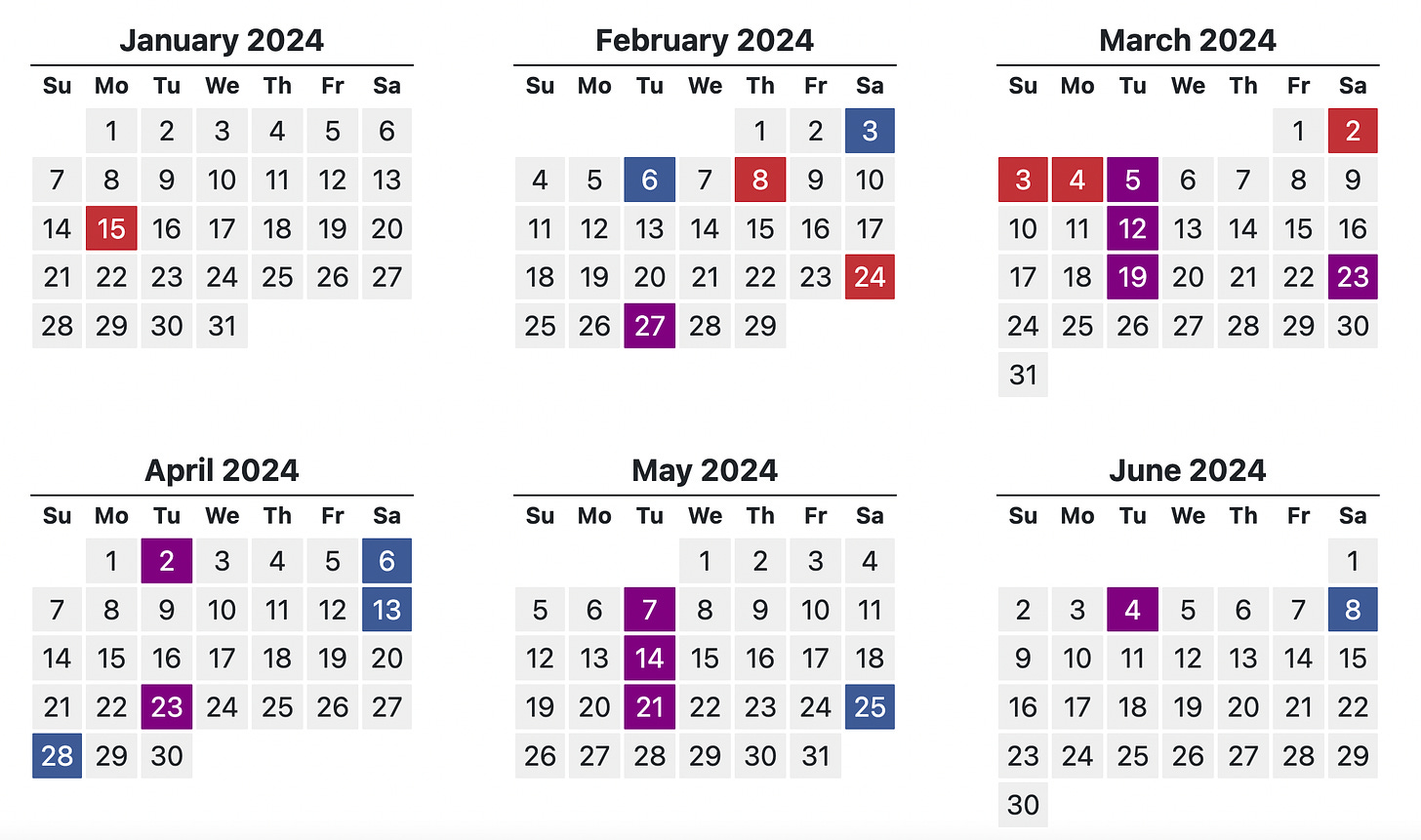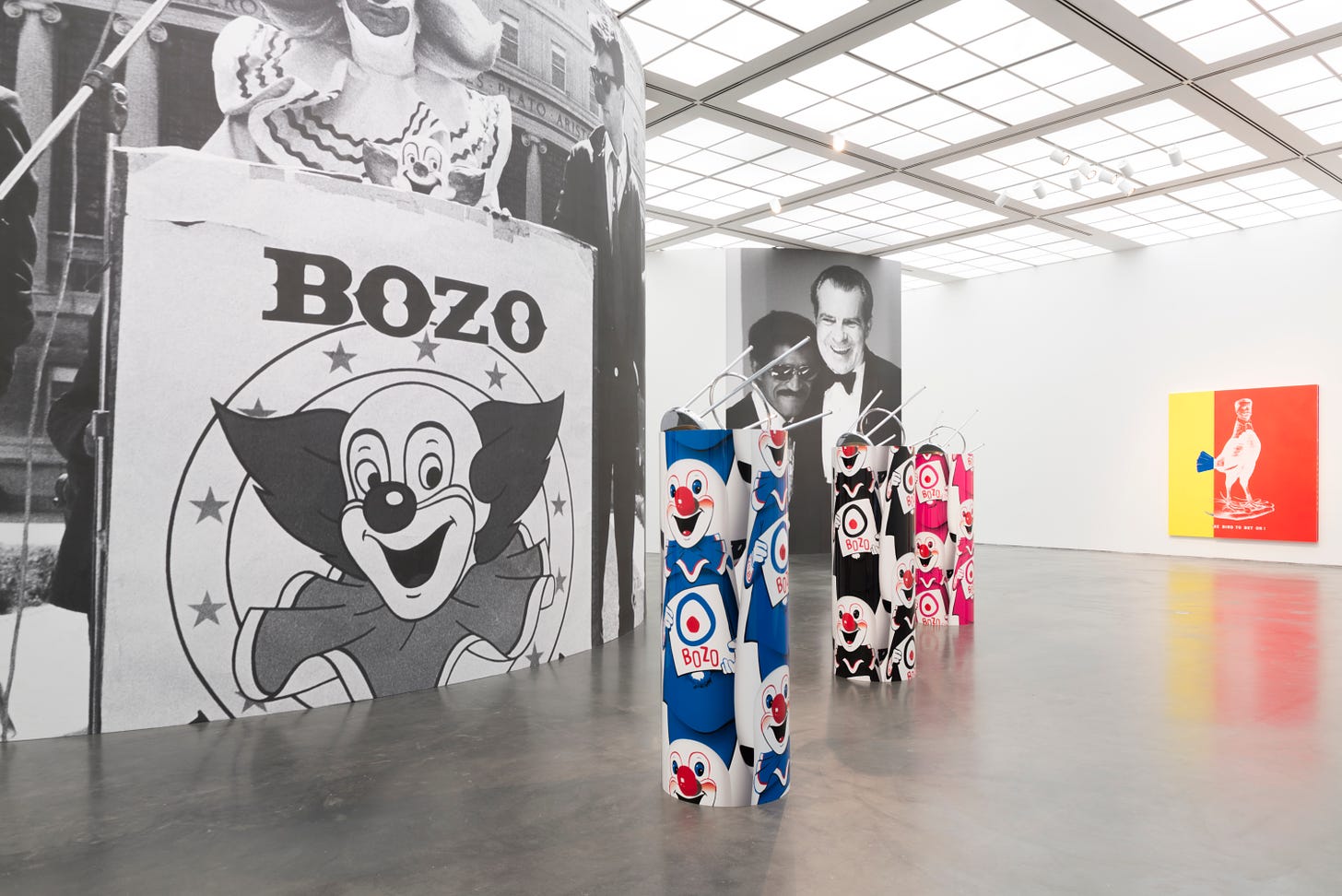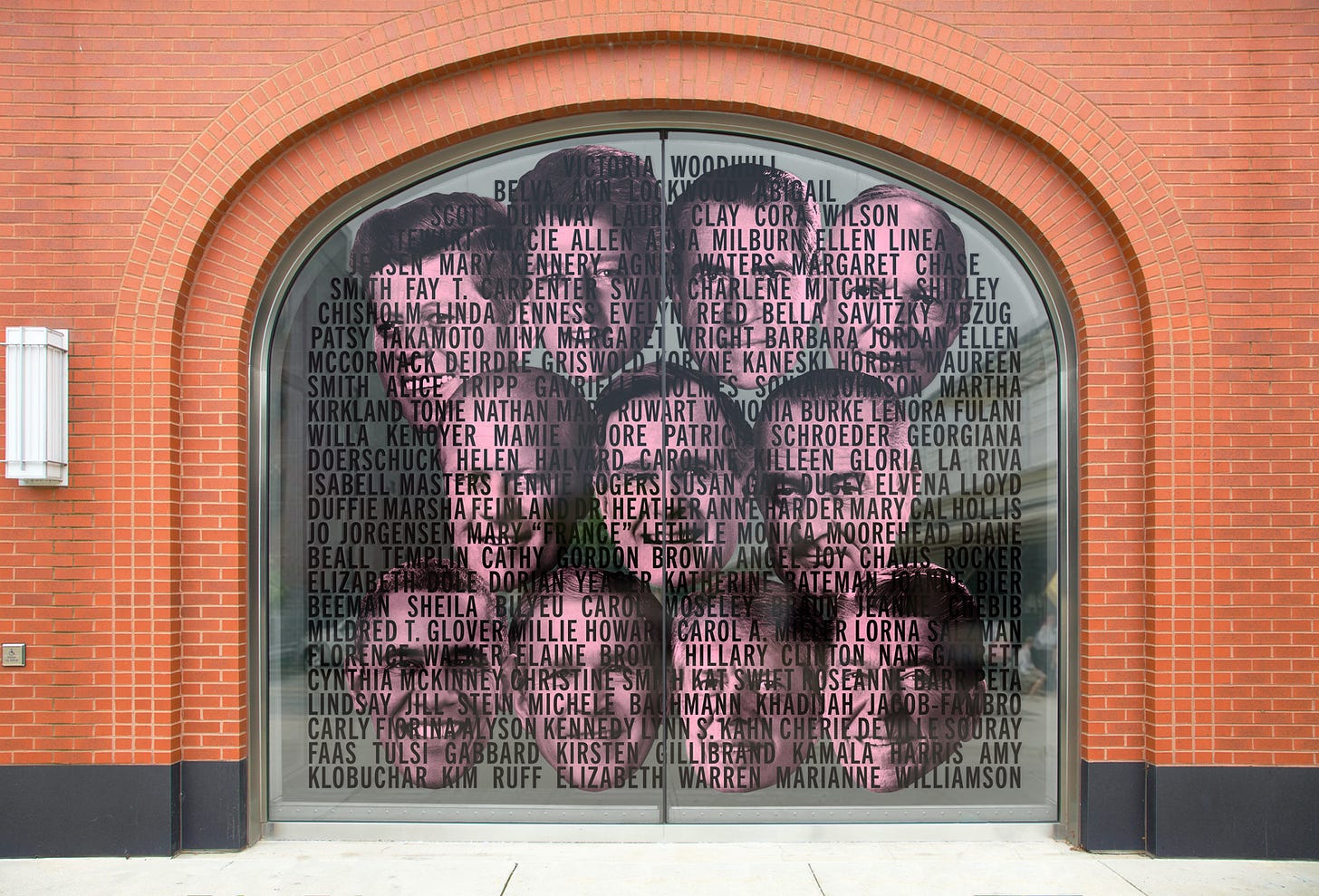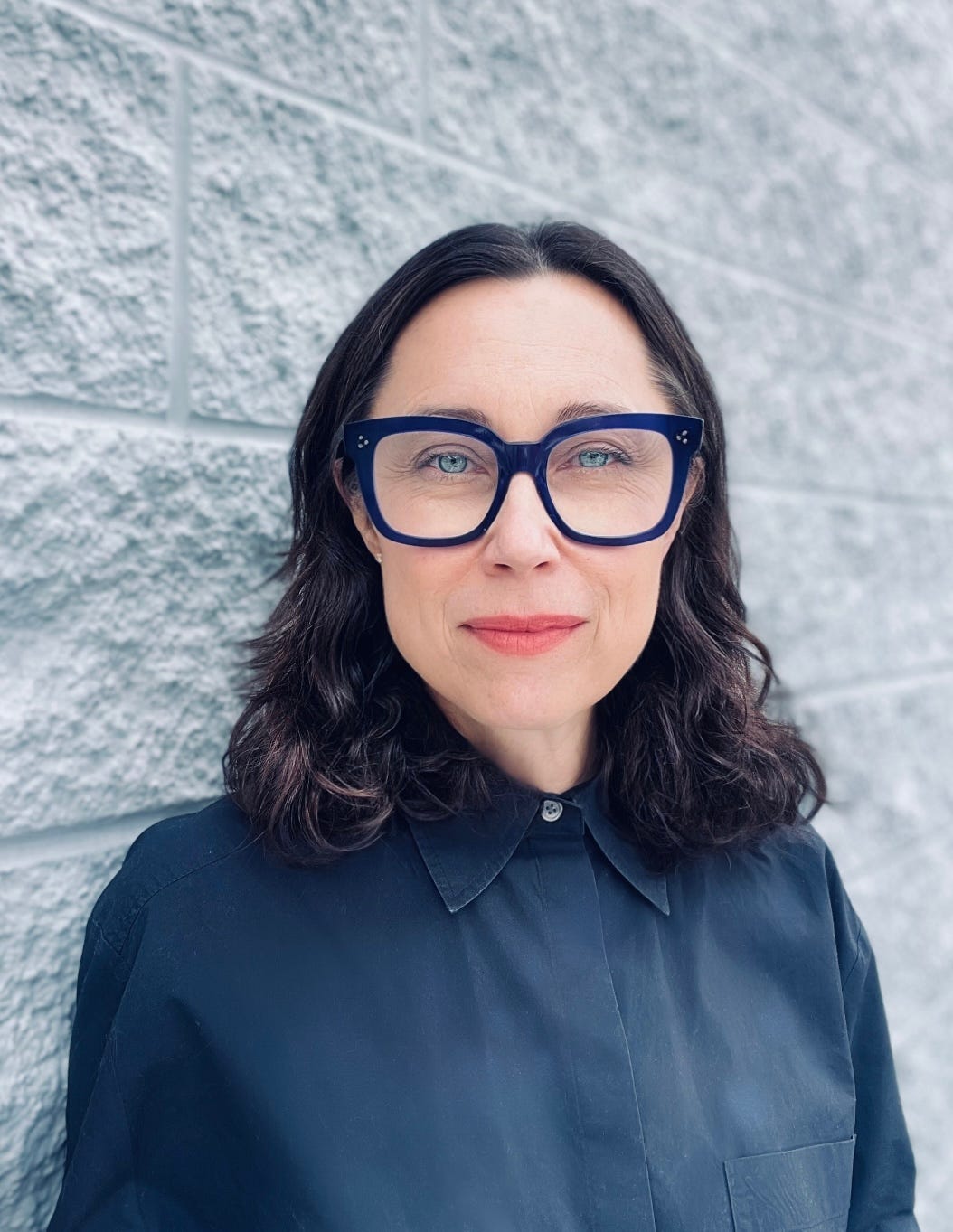Let's get ready for 2024
“Artists need to be courageous enough to stand up to the failures of the system.”
In each issue of the Artists 4 Democracy newsletter, we share actions that you as an artist can take to help strengthen our democracy. We also profile an artist whose work reflects democratic values.
ACTION ITEM
Mark your calendar now for the 2024 elections
The US Presidential Election returns in 2024, and it’s going to be another all-hands-on-deck year in defense of democracy. Here at A4D we are working to build a better democracy that is more just, more equitable, and better reflects the needs and priorities of the people. That’s the long-term struggle.
Our focus in 2024 is on helping to ensure that every artist and art student we know registers AND votes. Toward that goal, we are calling on each of you to:
Vote in the primary election in the spring
Vote in the general election in November
Encourage everyone in your sphere of influence to vote, too
Yes—each of us has a sphere of influence, a group of people or organizations where you can have an impact even if you don’t have any official title or formal power. More on that in a future newsletter.
For now, as we head into the holiday season, we’re asking you to take four quick actions to get a head start on the election. You can do all this in less than 15 minutes:
November 5, 2024 is the last day to vote in the Presidential Election. Put that date on your calendar right now (download for Google)
Look up your state to find out when your primary election or caucus is. Primary elections and caucuses will be held between January 15 and June 4. Add the date for your state’s primary to your calendar. (What are primaries and caucuses?)
Double check to confirm that you are registered to vote. Even if you voted last time. Even if you are absolutely, completely, 100% certain that you’re registered, check again.
If you’re not, register to vote right now. Don’t wait until tomorrow. Don’t promise you’ll do it as soon as you can. Register now. If you’re having trouble deciding which party to choose, check out our handy A4D guide: What do Democrats and Republicans Believe?

So register to vote and mark your calendar now for 2024. There’s a lot more you can do to help strengthen and improve our democracy, and we’ll share some ideas in this newsletter over the next year.
Getting ready to vote is a great way to start.
ANOTHER ARTIST FOR DEMOCRACY
Kathryn Andrews
“Art can have an impact, but I’m not convinced it can do all the jobs that need to be done to right the situation we are in.”
Los Angeles-based artist Kathryn Andrews believes deeply in the power of art, that it can challenge us to see differently on a very basic level. Andrews also believes that art can critique and comment on major issues of the day. It can model other ways of being. It can offer hope.
Andrews’ work addresses the nature of power as it manifests in different social histories, through symbolic means. Her solo exhibition, Run for President, wove together political, corporate, and entertainment industry references including Bozo the Clown (who ran for President himself in 1984), James Bond, Sammy Davis Jr., and former American Presidents, laying bare the racism and sexism deeply embedded in American politics. First shown in 2015, Run for President turned out to have been a harbinger of elections to come. What appeared at first glance to be comical and light, was actually a biting commentary on weaknesses in our system of governance that we are still struggling with today.

Her 2020 site-specific installation at DePaul University Art Museum was even more direct. In it, the faces of recent 20th-century American Presidents were overlaid—almost to the point of obscuring them completely—with the names of every woman who has run for President, dating back to Victoria Woodhull in 1872. How many of these women have you ever heard of?
After making this work Andrews began thinking about what it would take to truly uproot sexism in American culture. Work like hers, she recognized, provides a powerful paradigm-shifting experience for viewers, but she wanted to do more.
This year, Andrews formed The Judith Center, a social justice organization focused on educating people about the systemic nature of sexism. Andrews is working to engage artists, scientists, politicians, economists, activists, and others in conversation, with the belief that a diversity of knowledge is needed to tackle the problem. Using art as a focal point, the center will focus on how patterns of sexism play out across different fields, and on how its presence in one area limits progress in others.
The Judith Center’s first initiative is commissioning 50 artists to make posters on different topics, all speaking to gender inequality. The posters will be exhibited in 30 venues over a five-year period, accompanied by talks and panel discussions. Programming will officially launch in spring 2024 at the Hammer Museum in Los Angeles as Presidential primary elections are taking place across the US.
The first poster exhibition will take place at the Broad Art Museum at Michigan State University, focusing on artificial intelligence’s impact on women’s electoral campaigns. Andrews selected Michigan because it has been a center of recent political violence targeted against women in office.
“I want to spotlight what sexism looks like now, in this moment, particularly with the rise of new technologies that can be weaponized.”

For Andrews, democracy is about equal opportunity and about building trust and mutual respect so that we can work through contentious problems.
“Democracy is a space where people come together and arrive at a compromise.” Because the interests of different groups aren’t perfectly aligned, she says, each group has to give up some amount of self interest for the common good.
How much self interest should each of us be expected to forfeit? Her answer offers a way forward in deeply polarized times:
“We need to learn how to listen and to validate each other, and to understand why others think the way they do. This is a two-way process. It’s going to take much more empathy. We all need schooling in how to become a lot more compassionate to one another.
Much more about Kathryn Andrews can be found at kathrynandrews.net. The Judith Center is at thejudithcenter.org.
Thanks for reading the Artists 4 Democracy Newsletter. Artists 4 Democracy promotes democratic and civic engagement by mobilizing artists to get involved in political action. Through voter registration drives, fundraisers, and events we seek to foster and protect our participatory democracy.



